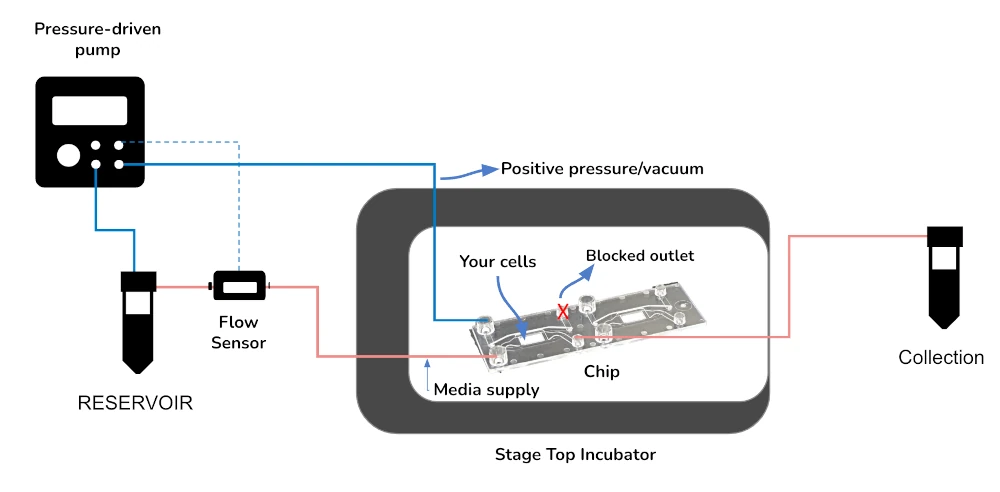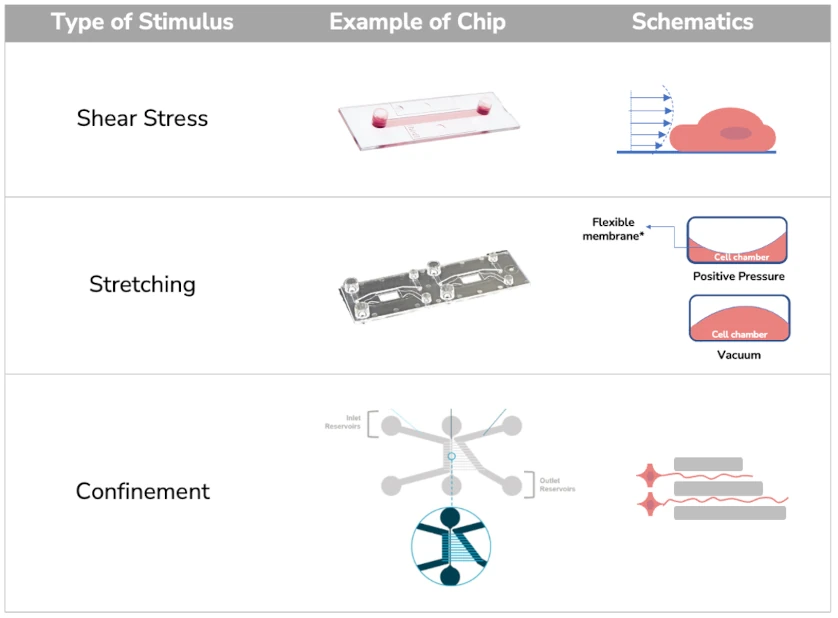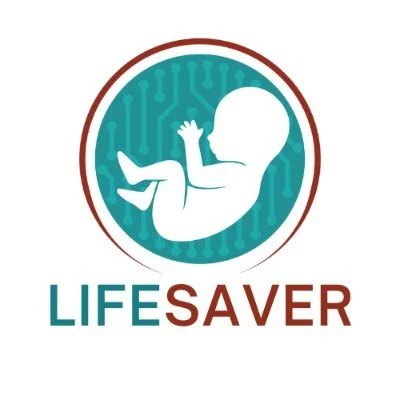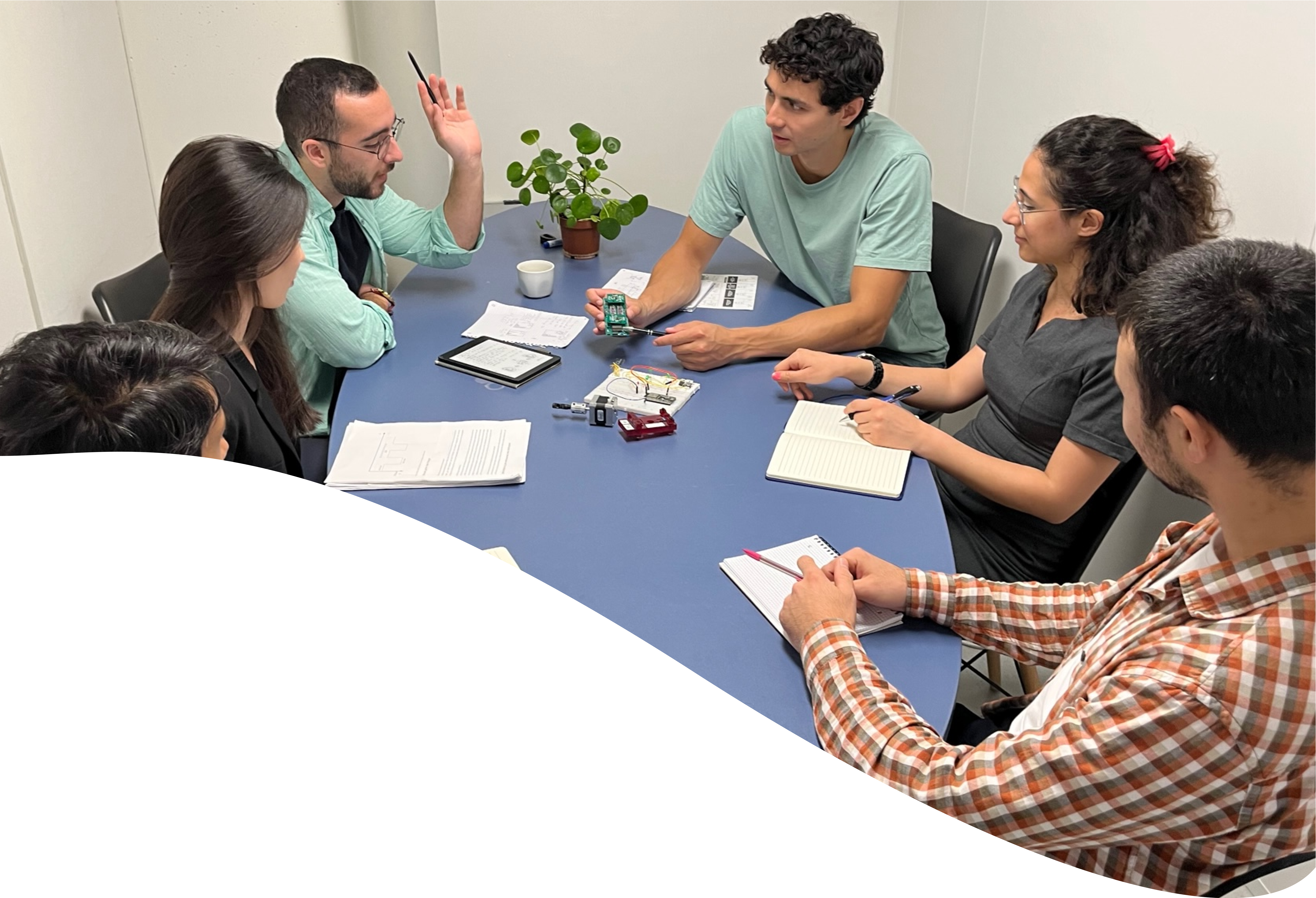Biomechanics and modeling in mechanobiology pack
Surround your cells with a more realistic microenvironment
Control the chip of your preference
Apply different mechanical stresses with one setup
Mechanobiological cell response
Allows advanced molecular and morphological analysis of cells
Follow your cells in real-time
Keep your cells at the right temperature under the microscope
Image Credit: SEM of blood corpuscles in clot. David Gregory & Debbie Marshall. Licence: Attribution 4.0 International (CC BY 4.0)
Biomechanics and modeling in mechanobiology (BMM) setup
The pack consists of a flow controller and a flow sensor to control the media supply to your cells and the desired mechanical stimulus. The level sensors are a fail-safe mechanism to prevent reservoir empties and your cells from being undesirably exposed to air.
The chip is placed inside our stage-top incubator, so the cells are kept at the ideal temperature on top of the microscope stage during the experiment. The mechanical stimulus’s effects can be followed in real-time. The supernatant can be collected for further molecular analysis.
Different chips can be employed with this setup. In the example below, the Microfluidic ChipShop chip 480 has been used to exert stretching stimulus on cells cultured on the membrane. It is important to note that off-the-shelf chips do not possess a flexible membrane and the membrane may require customization to be suitable for trial assays.

The BMM pack includes:
Flow sensor (Galileo, MIC)
Stage top incubator (in development)
Level sensors
Software (Galileo user interface)
Flow controller
Several Falcon or Eppendorf reservoirs
Tubings and luers
Microfluidic chips of choice (including home-made chips)
User guide
* The off-the-shelf membrane is intended for molecular transport assays and does not possess a flexible membrane. Customer-specific membranes can be used upon request to Microfluidic ChipShop.
Check our automated cell culture platform for more details on an integrated approach!
Types of mechanical stimuli
Several commercially available chips can perform mechanical stimulus analysis with our biomechanics and modeling in mechanobiology setup. The setup can also be used with home-made chips. A quick exchange with our team can clarify the need for specific adapters.
For shear stress assays, Ibidi’s straight channel µ-Slide I Luer is a great option that can be easily used with our setup. The shear stress applied on top of the cells can be estimated by entering the dimensions of the chip into the Shear Stress calculator.
As shown above, the Microfluidic ChipShop chip 480 can be adapted to perform stretching assays. The chip comes with a porous cross-flow membrane intended to serve molecular transport across the chambers, but the supplier can customize it upon request.
Netri’s DuaLink Delta Ultra chips are a good option for confinement assays. These devices were designed especially for co-cultures and enhanced growth kinetics studies.

* The off-the-shelf membrane is intended for molecular transport assays. Customer-specific membranes can be used upon request to Microfluidic ChipShop.
Customize your pack
Our Packs, such as the Biomechanics and Modeling in Mechanobiology Pack, can be modified according to your specific needs. In this light, our microfluidic specialists will advise you on the best instruments and accessories and accompany you during the setup of the microfluidic platform.
Frequently asked questions
Is the stage top incubator gas-tight?
No, the chamber allows gas exchange with the atmosphere.
Can the chamber be sterilized?
Yes, we have developed a simple protocol for sterilization and cleaning that is provided along with the user guide.
Can I buy individual instruments?
Our instruments are in beta testing phase and can be tested as a pack or individually, so get in contact with our team to know how our beta testing program works.




